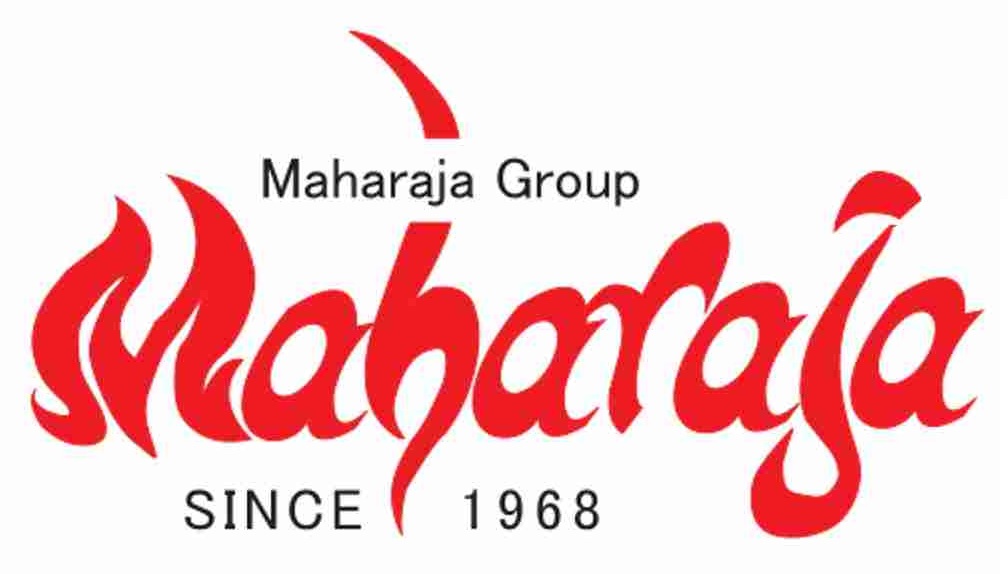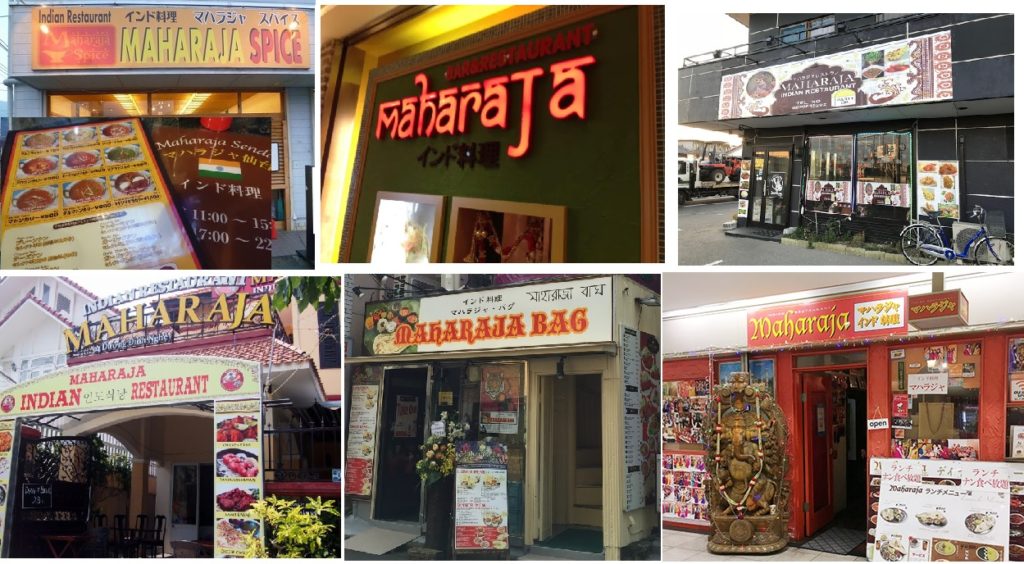On July 8, 2020, the Japan IP High Court affirmed the JPO’s rejection in a trademark dispute over the “MAHARAJA” mark for Indian restaurant services in class 43. [Judicial case no. Reiwa2(Gyo-ke)10022]
Disputed mark
The disputed mark prominently consists of “Maharaja” with stylization in red (see below).

The mark was filed by MAHARAJA.CO., LTD, on December 25, 2017, designating the services of providing Indian cuisine; providing alcoholic beverages, tea, coffee, or juices; providing hotel accommodation in class 43 [TM application no. 2017-168406].
The applicant allegedly opened the first “Maharaja” Indian restaurant at Shinjuku (Tokyo) in 1968 and now operates the “Maharaja” restaurants at some places in Japan.
JPO decision
The Japan Patent Office (JPO) rejected the disputed mark in contravention of Article 4(1)(xi) of the Japan Trademark Law by citing the following senior registrations.

Article 4(1)(xi) is a provision to prohibit registering a junior mark which is identical with, or similar to, any senior registered mark.
The JPO found that the stylized “Maharaja” term, due to its position, larger font, and color, dominates the perception of the disputed mark. If so, the disputed mark obviously gives rise to the same sound and meaning with the Citations. “MAHARAJA” means the head of one of the royal families that used to rule parts of India (Collins English Dictionary). Because of a high degree of phonetic and conceptual similarity, the mere difference in appearance is not sufficient to neutralize the similarity.
Besides, it is unquestionable that the disputed mark designates identical or similar services with the Citations.
For the reader’s reference, I had better explain that the Citations are respectively co-existing on similar services of providing Indian cuisine; providing alcoholic beverages in the same class. It is because these were filed just after the implementation of Servicemark in 1992 and the Trademark Law exceptionally secured for registration to protect the existing business status even if similar marks are filed by other entities on the condition that business owners apply for registration within a statutory period for the implementation.
To contest the JPO decision [Appeal case no. 2019-4961], the applicant appealed to the IP High Court on February 19, 2020.
IP High Court ruling
Applicant argued that since “MAHARAJA” has become a generic term in relation to Indian restaurant services, relevant consumers would find the appearance of the “MAHARAJA” mark rather than sound and meaning as a material clue to distinguish such restaurants. To bolster the argument, the applicant referred to the fact that 14 (fourteen) restaurants managed by an entity other than the applicant provide Indian foods using tradename “MAHARAJA” in Japan.

Given relevant consumers are accustomed to seeing the term “MAHARAJA” in close connection with Indian foods, it would likely be a generic term in relation to the service in question. If so, the aural and conceptual elements of generic term shall not be taken into consideration in assessing the similarity of the mark. The JPO errored in finding the background of the case appropriately.
The court, however, did deny the applicant’s allegation, stating that the on-line database of NTT telephone directory (town page) shows 2162 Indian restaurants exist in Japan as of 2017. It means more than 2,100 Indian restaurants use a tradename other than “MAHARAJA”. Under the circumstances, the court would not find a reasonable reason to believe “MAHARAJA” has become a generic term in relation to the service.
Even though there are plenty of Indian restaurants under the tradename of “MAHARAJA” in Japan as the applicant argues, the court would not be convinced if relevant consumers distinguish such restaurants simply by means of the visual elements of a mark (tradename). Because the court finds it commercial practice for shop owners to modify the font and color of mark (tradename) depending on its place and venue.
Based on the foregoing, the court decided that the JPO did not error in finding similarity of the mark and dismissed the appeal entirely.
